Sanguine

Today's Word Sanguine SANG-gwin Definition (adjective) Optimistic or hopeful, especially in a difficult situation. Example Despite the company setbacks, the CEO remained sanguine about the future. Word Origin Middle English: from Old French sanguin(e), from Latin sanguineus ‘of blood’ — originally referring to the belief that a person’s blood temperament made them cheerful. Fun Fact Historically, sanguine was one of the four “humors” in ancient medicine. People with a sanguine temperament were believed to be cheerful, sociable, and energetic, thanks to an abundance of blood in their system. Today, the word is still used to describe people who remain confident and upbeat, especially when others are panicking. It’s a subtle way to say, they’re keeping it together—even when things look bleak.
Inure

Today's Word Inure ih-NUR Definition (verb) To become accustomed to something, especially something unpleasant. Example Over time, she became inured to the constant noise of the city. Word Origin Late Middle English: from Old French enurer, based on Latin inurare — in- (into) + urere (to burn), originally meaning “to burn in” or “harden by fire.” Fun Fact Inure often describes the mental or emotional process of adapting to difficulty, stress, or discomfort. It’s frequently used in psychology, journalism, and military contexts—anywhere people learn to cope with harsh conditions. You might become inured to cold weather, online trolling, or even tragic news headlines. It’s a word that suggests resilience—but also desensitization.
Deleterious
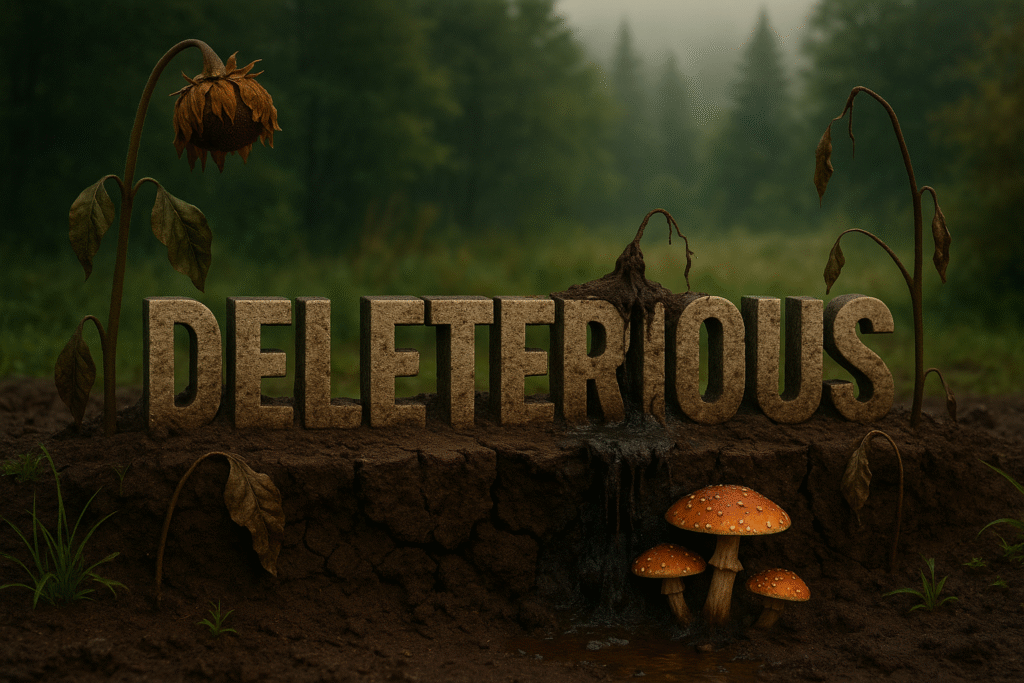
Today's Word Deleterious del-uh-TEER-ee-uhs Definition (adjective) Causing harm or damage, often in a subtle or unexpected way. Example Prolonged exposure to stress can have deleterious effects on your health. Word Origin Mid 17th century: from medieval Latin deleterius, from Greek dēlētērios ‘noxious’, from dēlētērios (related to destroy or *to hurt’). Fun Fact Deleterious is often used when something appears harmless but turns out to be damaging—like sugary drinks, misinformation, or prolonged noise. It’s not the loud crash—it’s the slow rot. You’ll find it in medical journals, legal decisions, and HR handbooks. It’s a favorite when talking about effects that are subtle, cumulative, and serious—without sounding dramatic.
Perfidious
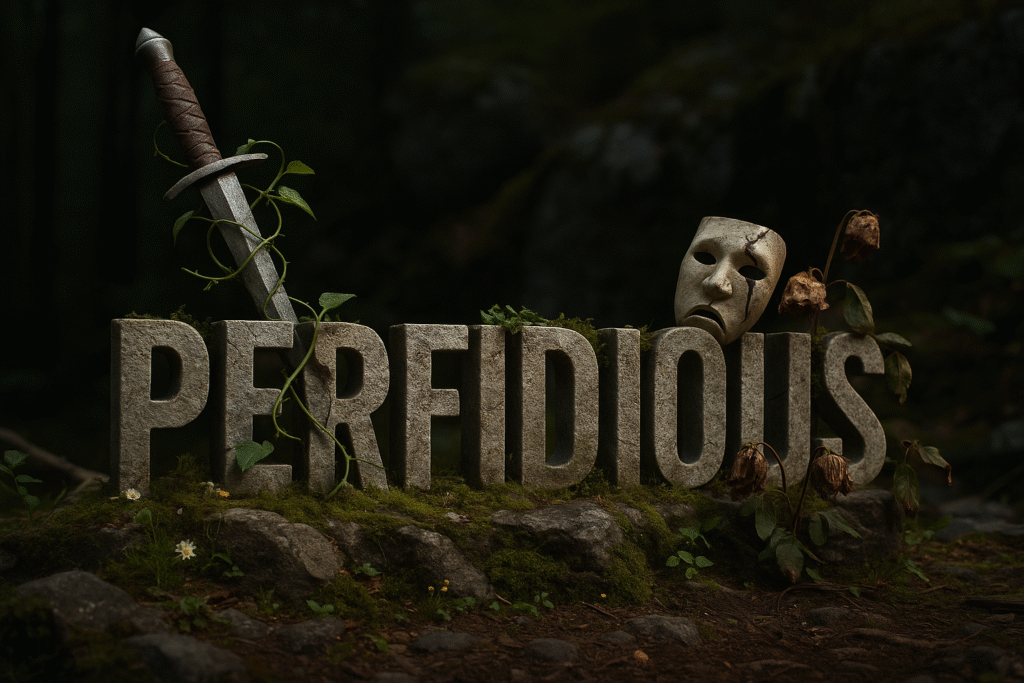
Today's Word Perfidious per-FID-ee-uhs Definition (adjective) Deceitful and untrustworthy; deliberately disloyal. Example His perfidious actions during the negotiation shocked even his rivals. Word Origin Late Middle English: from Old French perfidieux, from Latin perfidiosus, from perfidia ‘treachery’, based on per- ‘through’ + fides ‘faith’. Fun Fact Perfidious isn’t your average insult. It suggests a deep and knowing betrayal, often by someone who pretended to be loyal. Historically, it was used in diplomacy and politics—perfidious Albion was a nickname used by the French to accuse Britain of double-dealing. It shows up in literature, courtroom speeches, and bitter breakups. This isn’t just someone who disappointed you—it’s someone who knew exactly what they were doing.
Sinuous
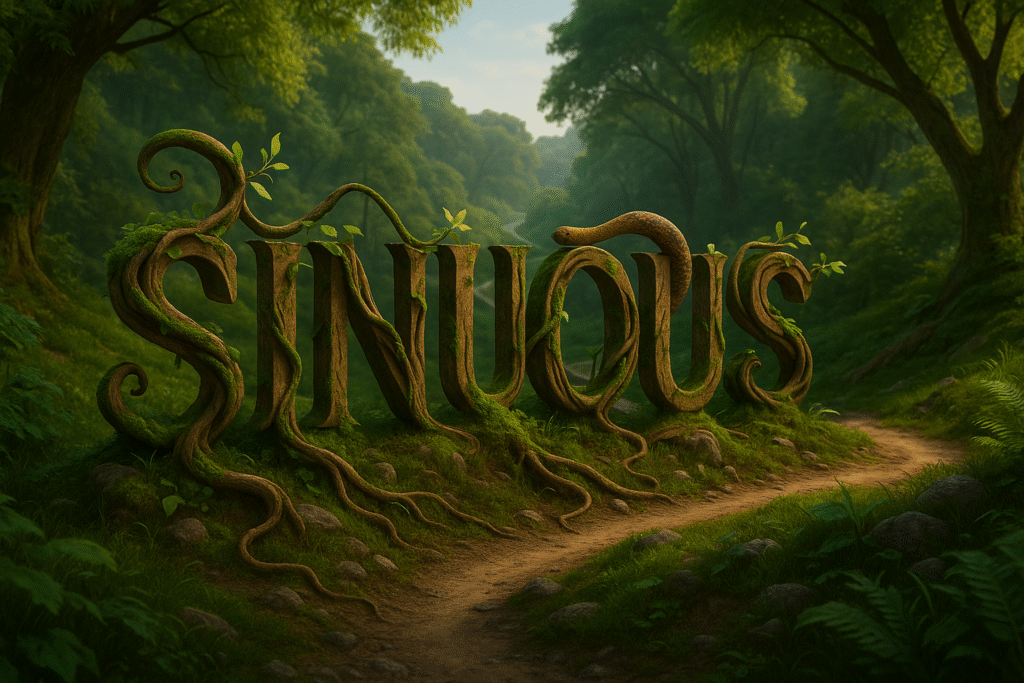
Today's Word Sinuous SIN-yoo-uhs Definition (adjective) Having many curves and turns; lithe and graceful in movement. Example The sinuous path through the forest twisted like a river. Word Origin Mid 17th century: from Latin sinuosus, from sinus meaning “a bend” or “curve.” Fun Fact Sinuous doesn’t just describe shape—it often implies beauty, fluidity, or grace in motion. You’ll find it used to describe snakes, rivers, dancers, or even sentence structure. In design, a sinuous form can be elegant or hypnotic. In literature, it’s often paired with movement—like a sinuous melody, path, or gesture that draws the eye without abruptness.
Irascible

Today's Word Irascible ih-RASS-uh-buhl Definition (adjective) Easily provoked to anger; quick-tempered. Example His irascible demeanor made every team meeting tense. Word Origin Late Middle English: from Old French irascible, from late Latin irascibilis, from irasci ‘grow angry’. Fun Fact Irascible doesn’t always describe someone in a full-on rage—it can apply to people who are just easily irritated or constantly on edge. It’s often used in fiction to characterize grumpy older men, volatile bosses, or that one short-fused coach. Think Scrooge, Dr. House, or a chihuahua with something to prove. It’s a word that paints a personality in tension.
Fallacious
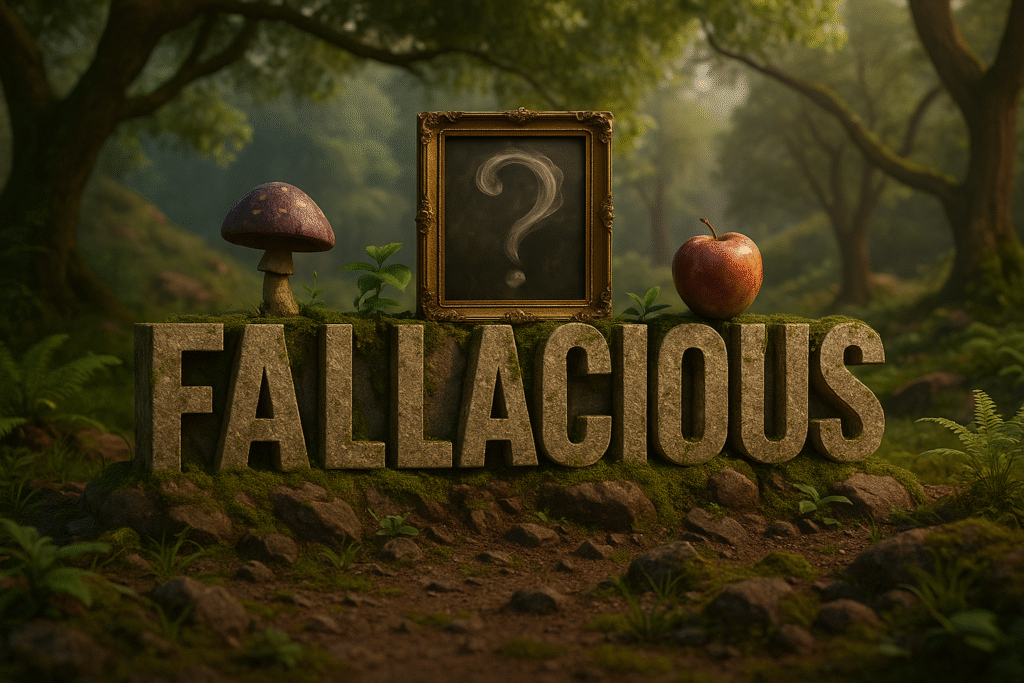
Today's Word Fallacious fuh-LAY-shus Definition (adjective) Based on a mistaken belief or containing logical errors. Example Her argument was persuasive but ultimately fallacious. Word Origin Late 15th century: from Latin fallaciosus, from fallere, meaning “to deceive.” Fun Fact Fallacious is the go-to word for arguments that sound solid at first—until you scratch the surface. It’s often used in logic, law, and debate to call out flawed reasoning, like straw man arguments or false dilemmas. In politics, marketing, and social media, fallacious reasoning spreads fast, which is why the word often shows up in fact-checking articles. It’s not about lying outright—it’s about logic that doesn’t hold up.
Iconoclast
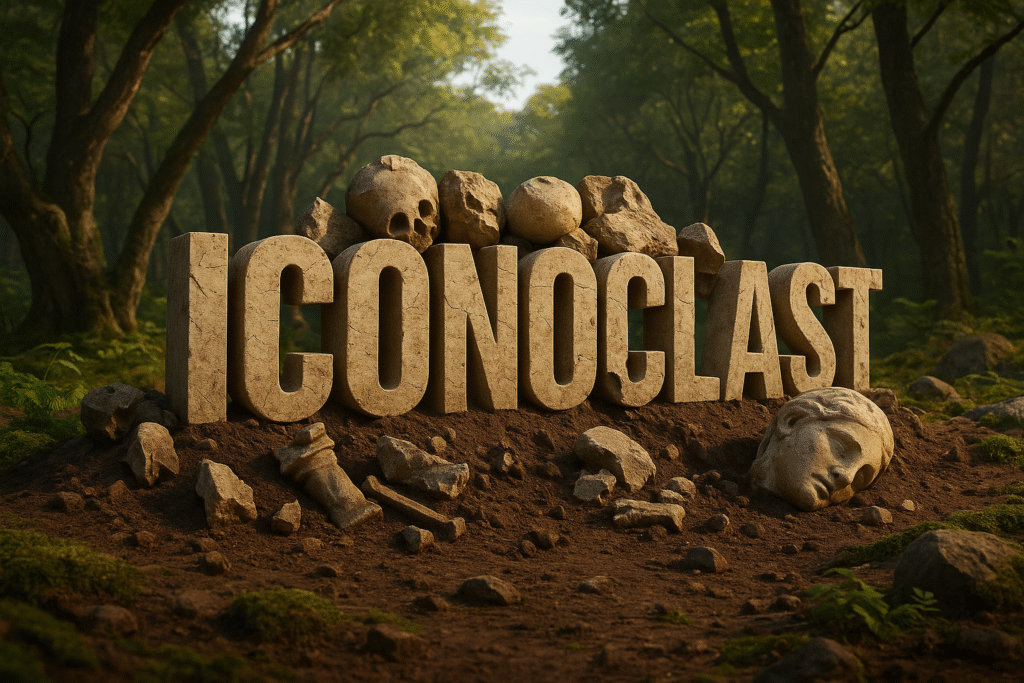
Today's Word Iconoclast eye-KON-uh-klast Definition (noun) A person who attacks or criticizes cherished beliefs or established institutions. Example The filmmaker built a reputation as an iconoclast, unafraid to challenge industry norms. Word Origin Mid 17th century: from Greek eikonoklastēs, from eikōn ‘icon’ + klastēs ‘breaker’ (from klan, ‘to break’). Originally referred to those who destroyed religious icons. Fun Fact Although it began as a term for religious defacers during the Byzantine Empire, iconoclast eventually took on a broader meaning. Today, it applies to anyone who disrupts tradition or challenges orthodoxy—from artists and entrepreneurs to scientists and comedians. Being called an iconoclast can be either a badge of honor or a warning label, depending on the company you keep.
Jurisprudence
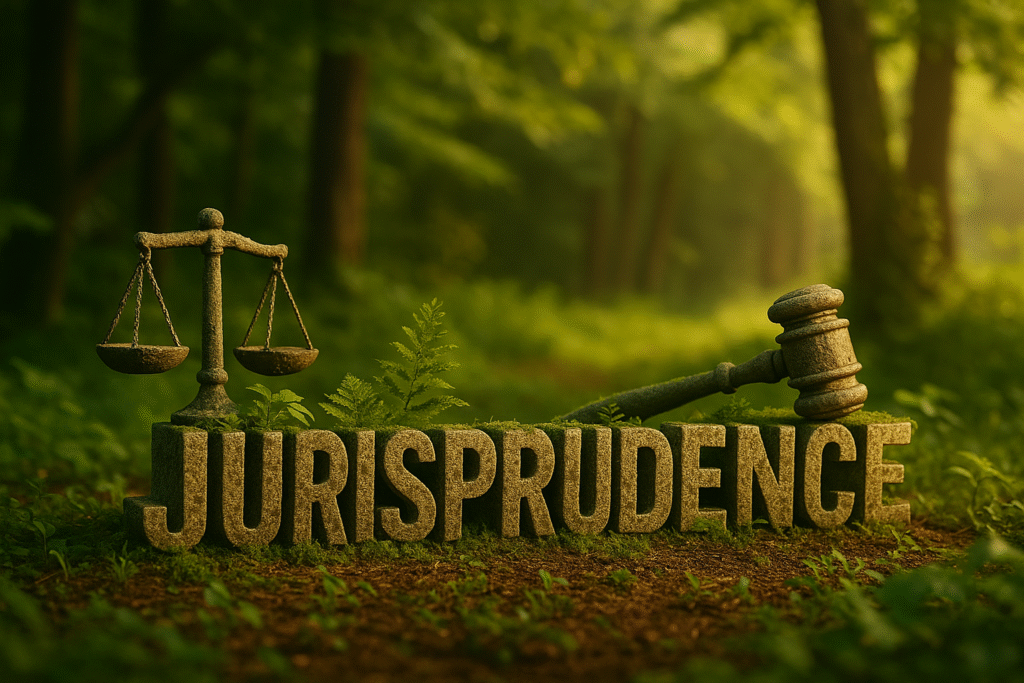
Today's Word Jurisprudence joor-is-PROO-dens Definition (noun) The theory or philosophy of law. Example The professor’s lectures focused on classical and modern jurisprudence. Word Origin Early 17th century: from late Latin jurisprudentia, from Latin jus, jur- ‘law’ + prudentia ‘knowledge’. Fun Fact Jurisprudence isn’t just about laws—it’s about why laws exist, how they’re interpreted, and what they should achieve. It’s a cornerstone of legal education and is often divided into schools of thought: natural law, legal positivism, critical legal theory, and more. While lawyers practice law, jurisprudence is for those who want to debate the very foundations of justice.
Bellicose
Today's Word Bellicose BEL-ih-kohs Definition (adjective) Demonstrating aggression and a willingness to fight. Example The athlete’s bellicose attitude made him feared—and often penalized. Fun Fact From Latin bellum, meaning “war,” bellicose describes people who don’t just argue—they thrive on confrontation. It’s stronger than “aggressive,” and often shows up in political commentary, historical writing, or sports journalism. You’ll see it used when someone doesn’t just fight back—they lead with hostility, often as a strategy.
